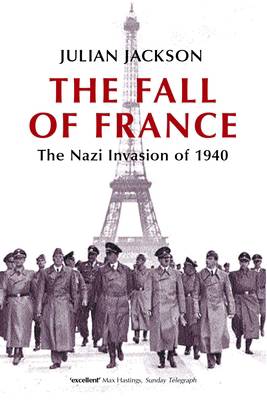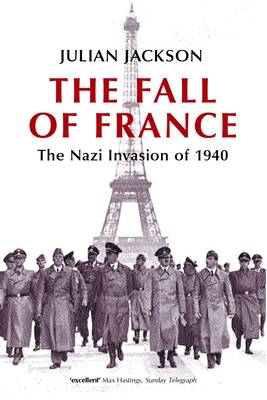
- Retrait gratuit dans votre magasin Club
- 7.000.000 titres dans notre catalogue
- Payer en toute sécurité
- Toujours un magasin près de chez vous
- Retrait gratuit dans votre magasin Club
- 7.000.0000 titres dans notre catalogue
- Payer en toute sécurité
- Toujours un magasin près de chez vous
19,95 €
+ 39 points
Description
This new book by Julian Jackson, a leading historian of twentieth-century France, charts the breathtakingly rapid events that led to the defeat and surrender of one of the key Allied powers, setting in motion the traumatic years of the Occupation, the Vichy regime, and the rapid escalation of World War Two.
Spécifications
Parties prenantes
- Auteur(s) :
- Editeur:
Contenu
- Nombre de pages :
- 296
- Collection :
Caractéristiques
- EAN:
- 9780192805508
- Date de parution :
- 22-04-04
- Format:
- Livre broché
- Dimensions :
- 245 mm x 140 mm
- Poids :
- 370 g

Les avis
Nous publions uniquement les avis qui respectent les conditions requises. Consultez nos conditions pour les avis.






